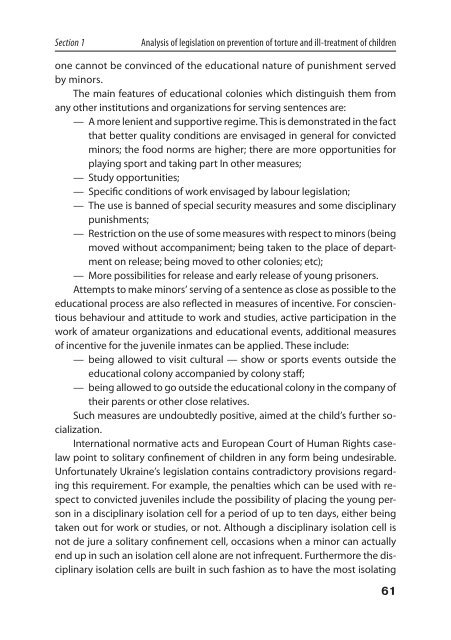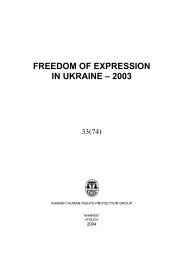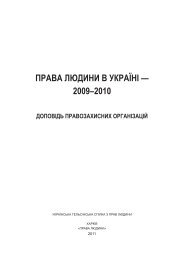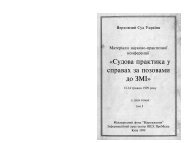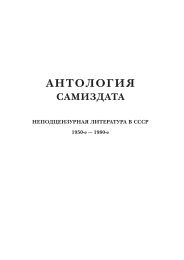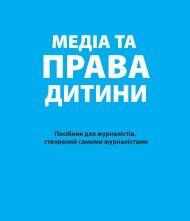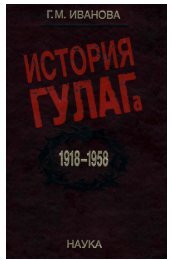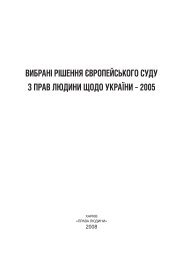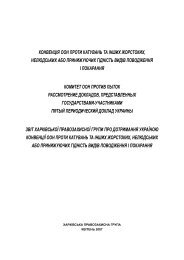TORTURE AND ILL-TREATMENT OF CHILDREN IN UKRAINE
TORTURE AND ILL-TREATMENT OF CHILDREN IN UKRAINE
TORTURE AND ILL-TREATMENT OF CHILDREN IN UKRAINE
- No tags were found...
Create successful ePaper yourself
Turn your PDF publications into a flip-book with our unique Google optimized e-Paper software.
Section 1Analysis of legislation on prevention of torture and ill-treatment of childrenone cannot be convinced of the educational nature of punishment servedby minors.The main features of educational colonies which distinguish them fromany other institutions and organizations for serving sentences are:— A more lenient and supportive regime. This is demonstrated in the factthat better quality conditions are envisaged in general for convictedminors; the food norms are higher; there are more opportunities forplaying sport and taking part In other measures;— Study opportunities;— Specific conditions of work envisaged by labour legislation;— The use is banned of special security measures and some disciplinarypunishments;— Restriction on the use of some measures with respect to minors (beingmoved without accompaniment; being taken to the place of departmenton release; being moved to other colonies; etc);— More possibilities for release and early release of young prisoners.Attempts to make minors’ serving of a sentence as close as possible to theeducational process are also reflected in measures of incentive. For conscientiousbehaviour and attitude to work and studies, active participation in thework of amateur organizations and educational events, additional measuresof incentive for the juvenile inmates can be applied. These include:— being allowed to visit cultural — show or sports events outside theeducational colony accompanied by colony staff;— being allowed to go outside the educational colony in the company oftheir parents or other close relatives.Such measures are undoubtedly positive, aimed at the child’s further socialization.International normative acts and European Court of Human Rights caselawpoint to solitary confinement of children in any form being undesirable.Unfortunately Ukraine’s legislation contains contradictory provisions regardingthis requirement. For example, the penalties which can be used with respectto convicted juveniles include the possibility of placing the young personin a disciplinary isolation cell for a period of up to ten days, either beingtaken out for work or studies, or not. Although a disciplinary isolation cell isnot de jure a solitary confinement cell, occasions when a minor can actuallyend up in such an isolation cell alone are not infrequent. Furthermore the disciplinaryisolation cells are built in such fashion as to have the most isolating61


